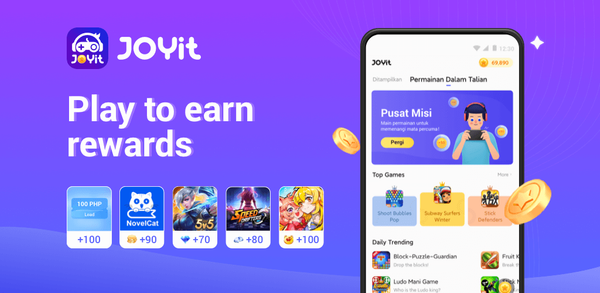Why Play-to-Earn Benefits Are Changing the Way You Play and Gain
The introduction of play-to-earn versions indicates a noteworthy change in the video gaming landscape, welcoming players to discover not only the home entertainment value of video games but likewise their potential as income-generating systems. This standard uses varied benefits, including property ownership via blockchain modern technology, which fundamentally changes player interaction and investment. As this model progresses, it offers an one-of-a-kind set of difficulties that can impact its sustainability and charm. Recognizing these dynamics increases significant inquiries about the future of video gaming and the ramifications for both gamers and developers alike.
Development of Play-to-Earn Models
Recently, the video gaming market has actually experienced a considerable change with the emergence of play-to-earn versions, basically modifying just how gamers engage with electronic atmospheres. This cutting-edge technique permits gamers to acquire tangible rewards through their in-game tasks, producing a shift from conventional gaming standards where satisfaction and competitors were the main motivations.
Play-to-earn models utilize blockchain modern technology and non-fungible symbols (NFTs) to supply players with possession of in-game properties, which can be traded or cost real-world money. Therefore, players are incentivized to invest time and effort right into games, fostering a feeling of company and monetary chance. play to earn rewards. This change has attracted a diverse gamer base, including those who may have formerly seen gaming as a totally recreational task
Numerous platforms have arised, showcasing successful implementations of this design, such as Axie Infinity and Decentraland. These systems have not just generated significant profits however additionally triggered discussions around the sustainability and ethics of such financial systems. As play-to-earn models continue to advance, they assure to redefine the connection in between players, programmers, and the wider electronic economic situation, leading the way for a brand-new era in video gaming.
Benefits for Gamers
As players engage with play-to-earn models, they open a series of benefits that extend beyond mere enjoyment. One of the most substantial advantages is the capacity for economic incentives. Unlike conventional pc gaming, where players invest money and time without substantial returns, play-to-earn systems permit players to make copyright or in-game properties that can be converted to real-world value. This financial incentive not only improves interaction yet also promotes a feeling of possession over the gaming experience.
In addition, play-to-earn designs promote neighborhood structure amongst gamers. Players frequently team up to attain shared goals, thereby cultivating social connections that enrich the total experience. This sense of area can cause participating gameplay, where players share approaches and resources, improving both personal and group accomplishments.
Additionally, these designs can equalize accessibility to site link video gaming by permitting players from diverse financial backgrounds to benefit financially. By taking part in play-to-earn ecological communities, individuals can obtain abilities and knowledge concerning blockchain modern technology, more broadening their career chances in the growing digital economic climate. Ultimately, the benefits for gamers expand well past gameplay, influencing their social, economic, and instructional landscapes favorably.
Obstacles in the Ecosystem
While the play-to-earn ecological community provides substantial opportunities, it is not without its difficulties. Variations in value can discourage prospective gamers that seek stable revenue streams.
One more obstacle is the threat of scams and fraudulent plans that can torment the ecological community. Players may experience misleading systems assuring high incentives yet ultimately bring about financial loss. Making sure depend on and security is critical for the lasting stability of play-to-earn versions.
Furthermore, the ecological influence of blockchain video gaming can not be ignored. The energy intake related to mining and deal handling increases ethical inquiries concerning sustainability. Video game programmers must find an equilibrium in between rewarding gamers and minimizing environmental footprints.
Finally, the regulative landscape is still developing, posturing prospective risks for programmers and gamers alike. Uncertain legal frameworks can hinder development and limit the development of play-to-earn communities. Dealing with these difficulties is vital for understanding the complete possibility of this transformative gaming standard.
The Role of Blockchain Innovation
Blockchain basics technology works as the foundation of the play-to-earn environment, attending to many of the difficulties formerly described. By utilizing decentralized journals, blockchain ensures openness and security in deals. Players can confidently gain and trade in-game possessions, recognizing that ownership is verifiable and exempt to control.

Tokenization of possessions plays a crucial function, giving gamers real ownership of their in-game products, which can be bought, marketed, or traded on various industries. This urges a vibrant additional market, where gamers can monetize their skills and time purchased the game.
Additionally, blockchain modern technology enables interoperability between different games and systems, enabling gamers to carry their possessions throughout numerous communities. This versatility not only boosts user experience but likewise promotes a much more inclusive gaming atmosphere, inevitably reshaping the landscape of video gaming and earning.
Future Patterns in Video Gaming
The video gaming industry is on the verge of a transformative evolution, driven by emerging technologies and shifting player assumptions. As play-to-earn designs gain grip, players are significantly seeking immersive experiences that blend enjoyment with substantial rewards. This shift is triggering designers to introduce, concentrating on developing interesting gameplay that cultivates area and interaction.
One significant fad is the assimilation of digital fact (VIRTUAL REALITY) and augmented reality (AR), enhancing the pc gaming experience by giving much deeper immersion and interactive atmospheres. Furthermore, advancements in artificial knowledge are allowing much more innovative non-player characters (NPCs) and adaptive gameplay, customizing experiences to specific gamer choices.
Verdict
To conclude, the play-to-earn design is substantially transforming the video gaming landscape by allowing go gamers to obtain real-world value from their in-game tasks. This paradigm change not only enhances gamer involvement and investment yet likewise raises obstacles that need to be dealt with to make sure sustainability within the community. As blockchain modern technology continues to promote ownership of digital assets, the future of video gaming promises more innovation and chances for players across varied backgrounds.